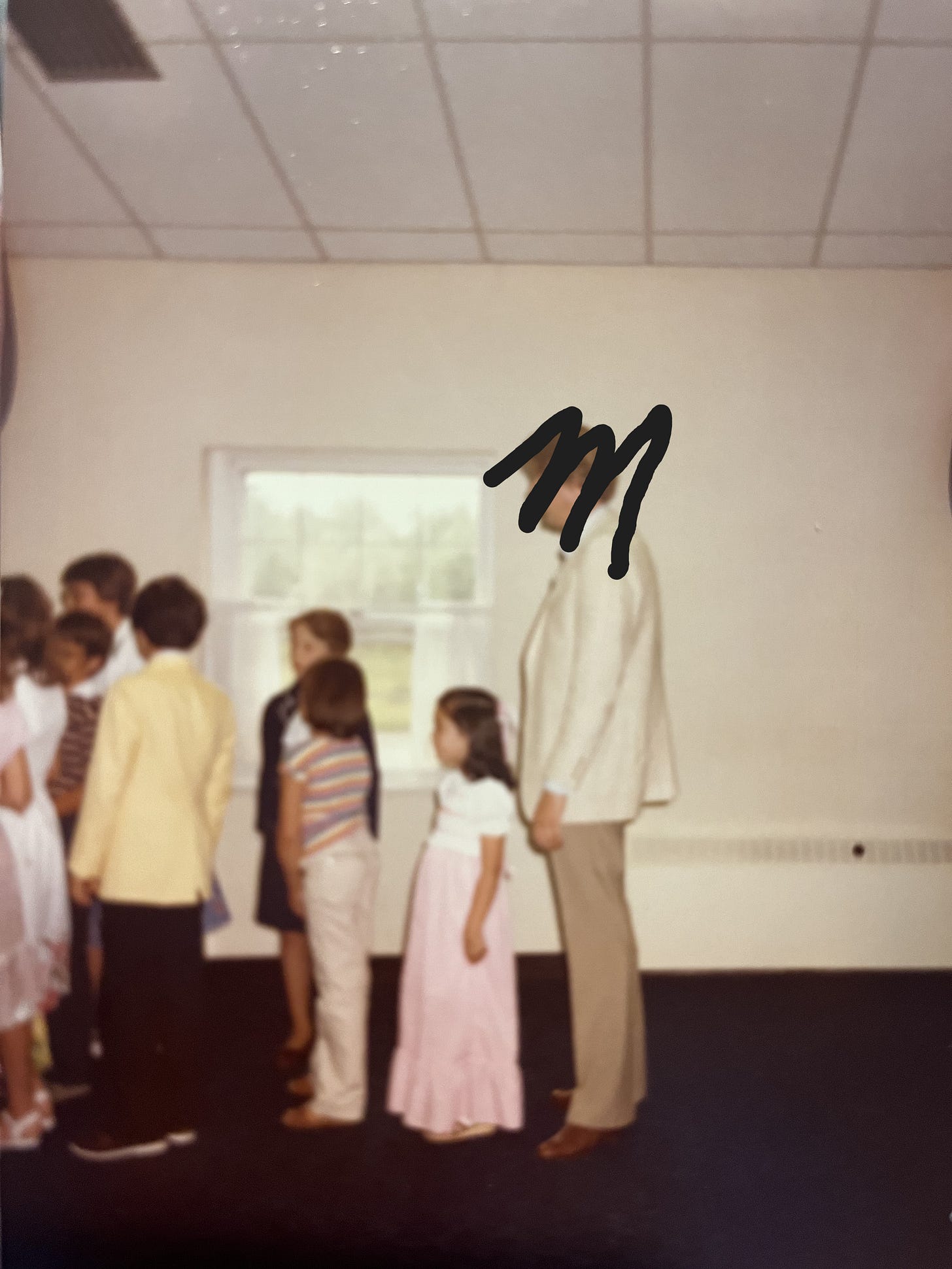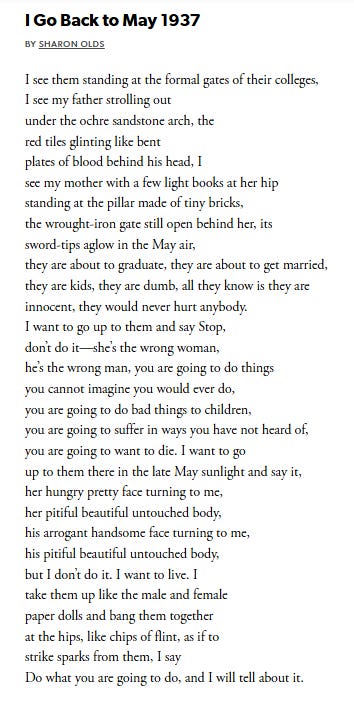While looking through my collection of family photographs, I came across this one, circa 1982. The man in the back of the line is my father & we are at church, in Bloomfield Hills, Michigan, where I spent much of my childhood. Of course, I know the narrative behind this photo, but you don’t. What narrative might you build around it?
Here’s what I notice:
The girl in the pink skirt and the man on the end stand directly in front of each other, not touching. Their arms are similar in shape and structure. They look somewhat less engaged/interested than the other people in line. The light outside is blurring the scene but based on how green the trees are and the way the people are dressed, perhaps it is spring or summer. Everyone seems to be waiting to see something ahead. The blank wall seems to be the same color as the man’s jacket on the end of the line. He seems inert, unmoving, immobilized.
Based on this information, a narrative poem is forming in my mind. I might write a stanza for each of the following questions:
What do you notice about this photo, from ceiling to floor, edge to edge, face to face?
Body language? What might you infer?
What is impossible to know, just by looking?
Recently I had the privilege of attending a generative workshop with Danez Smith (stay tuned for a Substack post inspired by their poems!) & was introduced to “I Go Back to May 1937,” a Sharon Olds poem I was not familiar with. It’s the sort of poem that offers infinite possibilities for teaching craft, a poem to return to again & again, when considering memory, family, complicity & the power of imagery. It is also a fabulous, Ekphrastic poem:
In today’s Substack, we will write poems inspired by Sharon Olds & Z.T. Corley in which we ask:
What can memory hold & when might imagination take the reigns? How can we navigate memory through the development of intentional, precise imagery & metaphor? How do we develop the “voice” of the image or metaphor, so that we convey meaning without “overexplaining?”
Keep reading with a 7-day free trial
Subscribe to They Say Poetry is Dead... to keep reading this post and get 7 days of free access to the full post archives.



